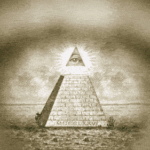The Illuminati has long been a subject of fascination and speculation. This secret society, often associated with conspiracy theories, is said to control world events from the shadows. The allure of the Illuminati lies in its perceived power and influence over politics, economics, and culture. In this article, we will explore the history, myths, and realities surrounding the Illuminati, as well as its impact on modern society.
What is the Illuminati?
The term Illuminati originally referred to the Bavarian Illuminati, a secret society founded in 1776. Its primary goal was to promote Enlightenment ideals, such as reason and secularism, in opposition to religious and political oppression. The Bavarian Illuminati was short-lived, being disbanded by the government in 1785, but its legacy has persisted.
The Origins
It was founded by Adam Weishaupt, a German philosopher. Weishaupt aimed to create a society that would educate its members on rational thought and scientific inquiry. Initially, the group attracted intellectuals and progressive thinkers. However, as rumors about the organization spread, it became associated with sinister motives and a desire for world domination.

The Myths Surrounding the Illuminati
Over the years, numerous myths and conspiracy theories have emerged about the it. Some believe that the group continues to exist and has infiltrated governments and major organizations worldwide. These theories often suggest that it manipulates global events to achieve their secret agenda.
- Global Control: Many conspiracy theorists argue that the it controls powerful institutions, including the media, banks, and governments. This belief feeds into a narrative that significant world events are orchestrated by a hidden elite.
- Celebrity Involvement: Popular culture often portrays it, as being linked to celebrities and musicians. Some believe that these figures are part of a larger plan to influence the masses and promote certain ideologies.
- Symbols and Significance: It is frequently associated with various symbols, such as the Eye of Providence or the pyramid. These symbols are said to represent the group’s hidden power and knowledge.
The Illuminati in Popular Culture
The influence of it is evident in various forms of media. From movies to music, the idea of a secret society pulling the strings behind the scenes has captured the public’s imagination. Films like “The Da Vinci Code” and series like “The X-Files” often reference the Illuminati, fueling further intrigue and speculation.
The Reality of the Illuminati
Despite the myths, the Illuminati as it is popularly understood today does not exist in the way conspiracy theorists suggest. The original Bavarian Illuminati was disbanded over two centuries ago. However, the fascination with secret societies continues, leading to the rise of various groups that claim to embody Illuminati principles.
Modern Secret Societies
While the original may no longer exist, modern secret societies, such as the Freemasons or the Skull and Bones, often draw parallels to the it. These organizations also engage in secrecy and exclusivity, leading some to believe they have similar goals of world control.
The Psychological Appeal of the Illuminati
The allure lies in the human tendency to seek explanations for complex events. When faced with uncertainty, people often turn to conspiracy theories to make sense of the world. The belief in a secret society controlling global affairs provides a sense of clarity, even if that belief is unfounded.
The Impact on Society
It has significantly impacted societal views on power and control. The idea of an all-powerful elite has sparked discussions about transparency, accountability, and the influence of wealth in politics. This skepticism towards authority can lead to calls for reform and greater civic engagement.
Encouraging Critical Thinking
The myths surrounding the it, encourage individuals to question mainstream narratives. This skepticism can be beneficial, prompting discussions about the importance of transparency in governance and the need for critical thinking in evaluating information sources.
Conclusion: The Legacy of the Illuminati
It remains a potent symbol of secrecy and power in modern society. While the original society was short-lived, its legacy continues to inspire conspiracy theories and cultural references. Understanding the history and myths surrounding the Illuminati allows us to engage critically with these narratives and recognize their impact on our perceptions of authority and control.
In summary, it is not just a relic of the past but a phenomenon that continues to shape our understanding of the world. As we navigate the complexities of modern life, the lessons learned from the myths of it, can guide us in our quest for truth and understanding








